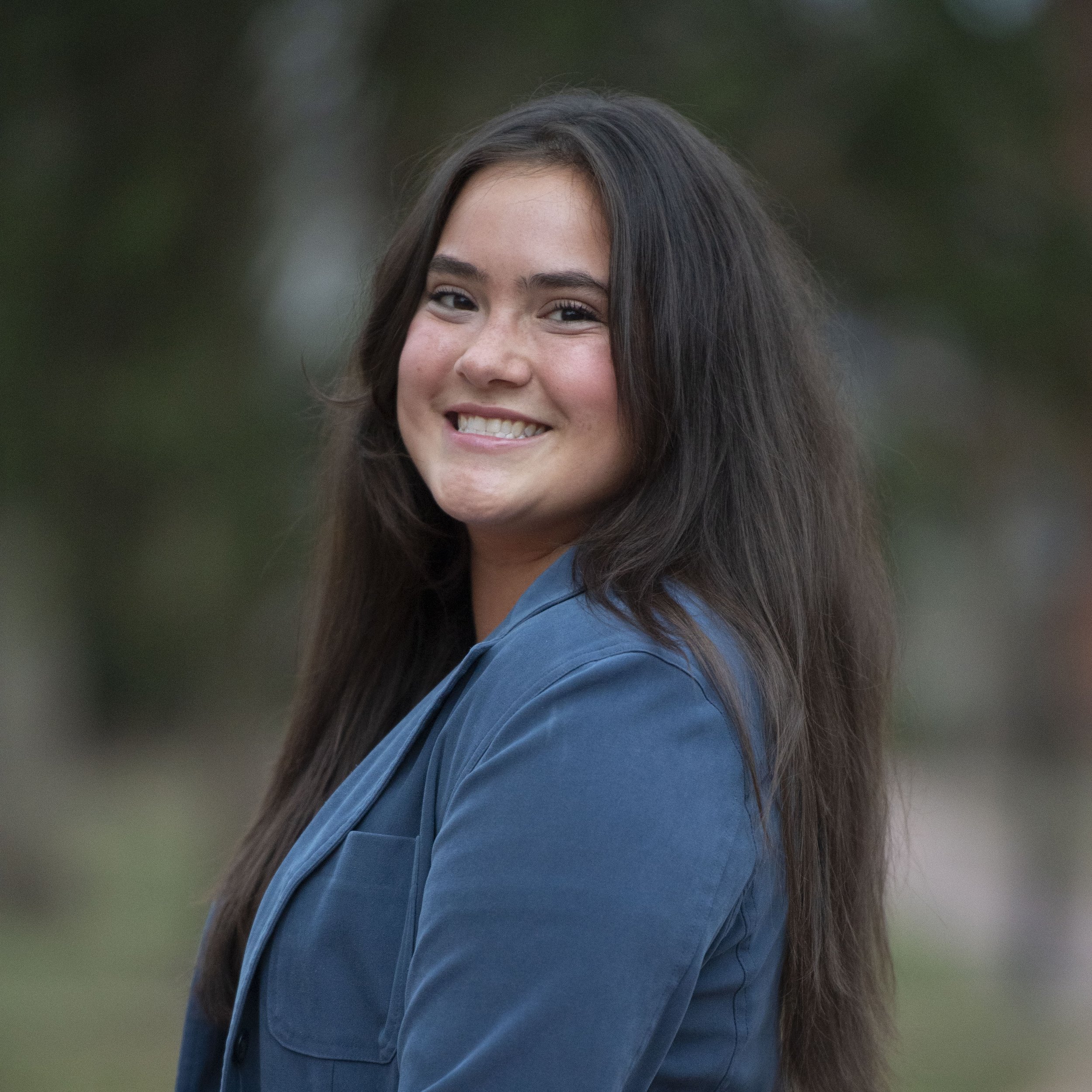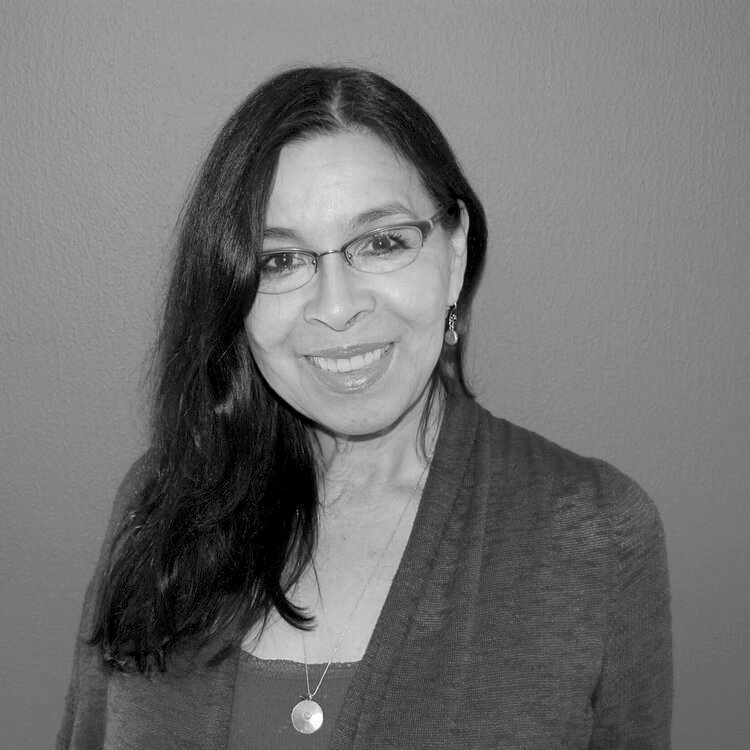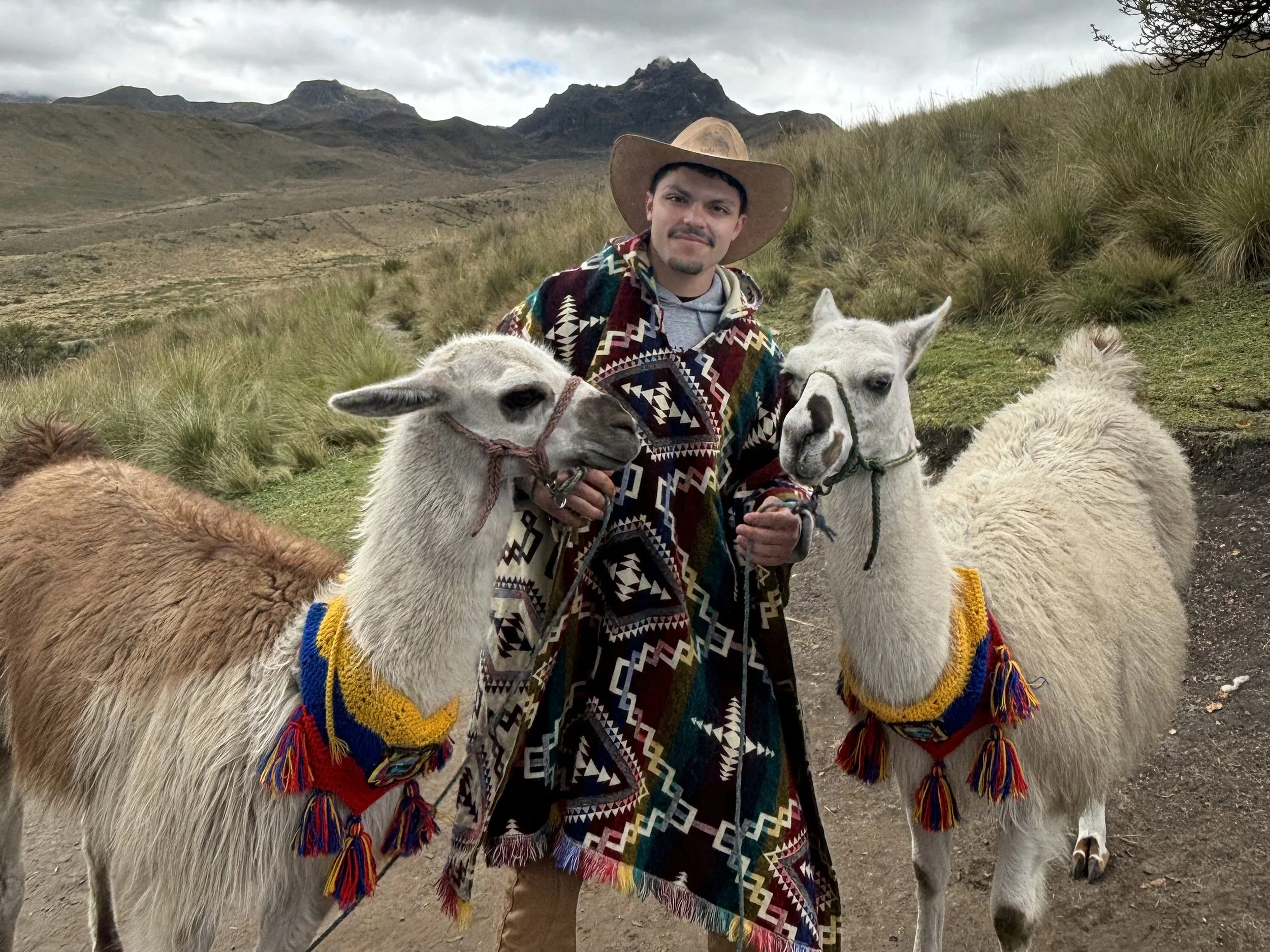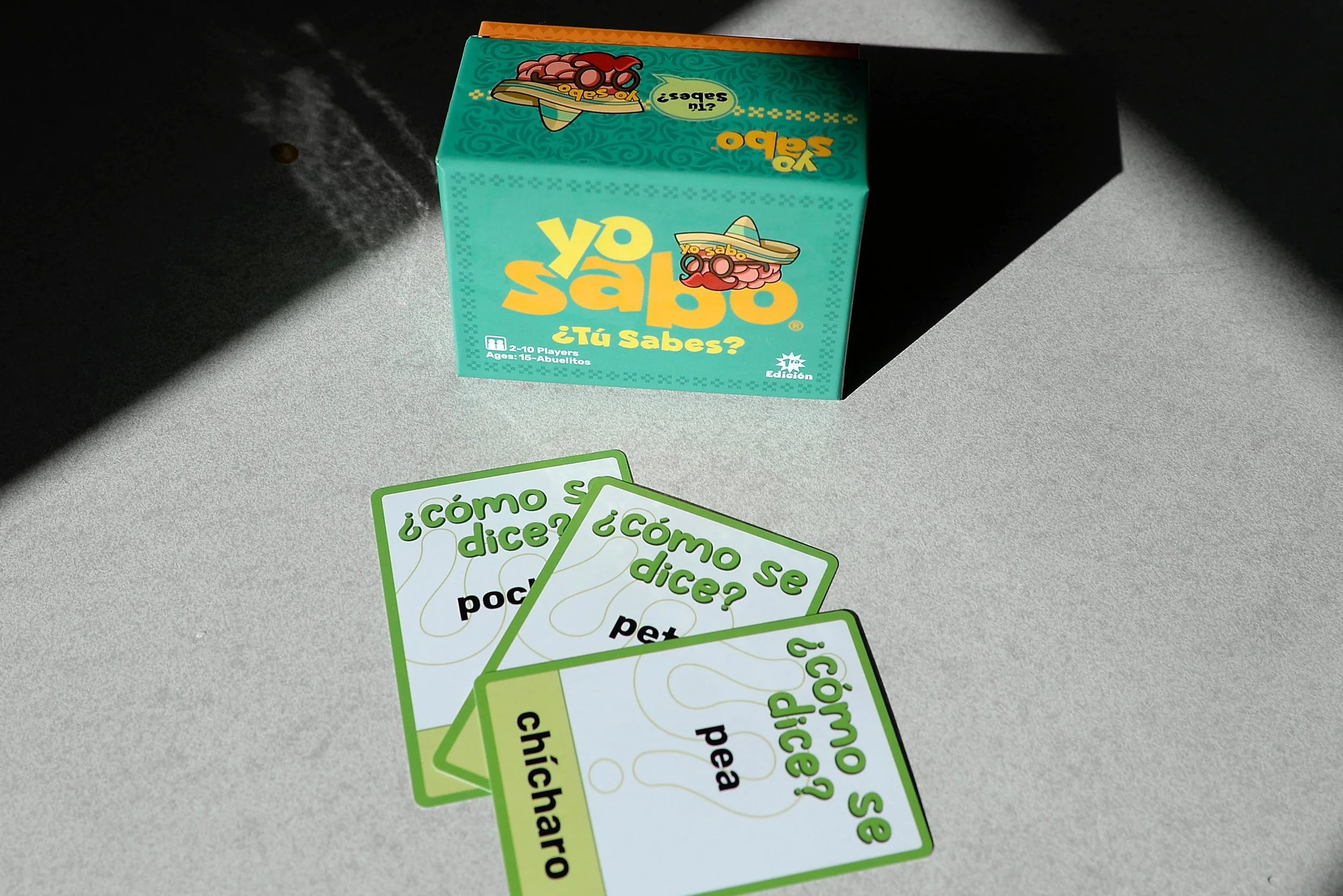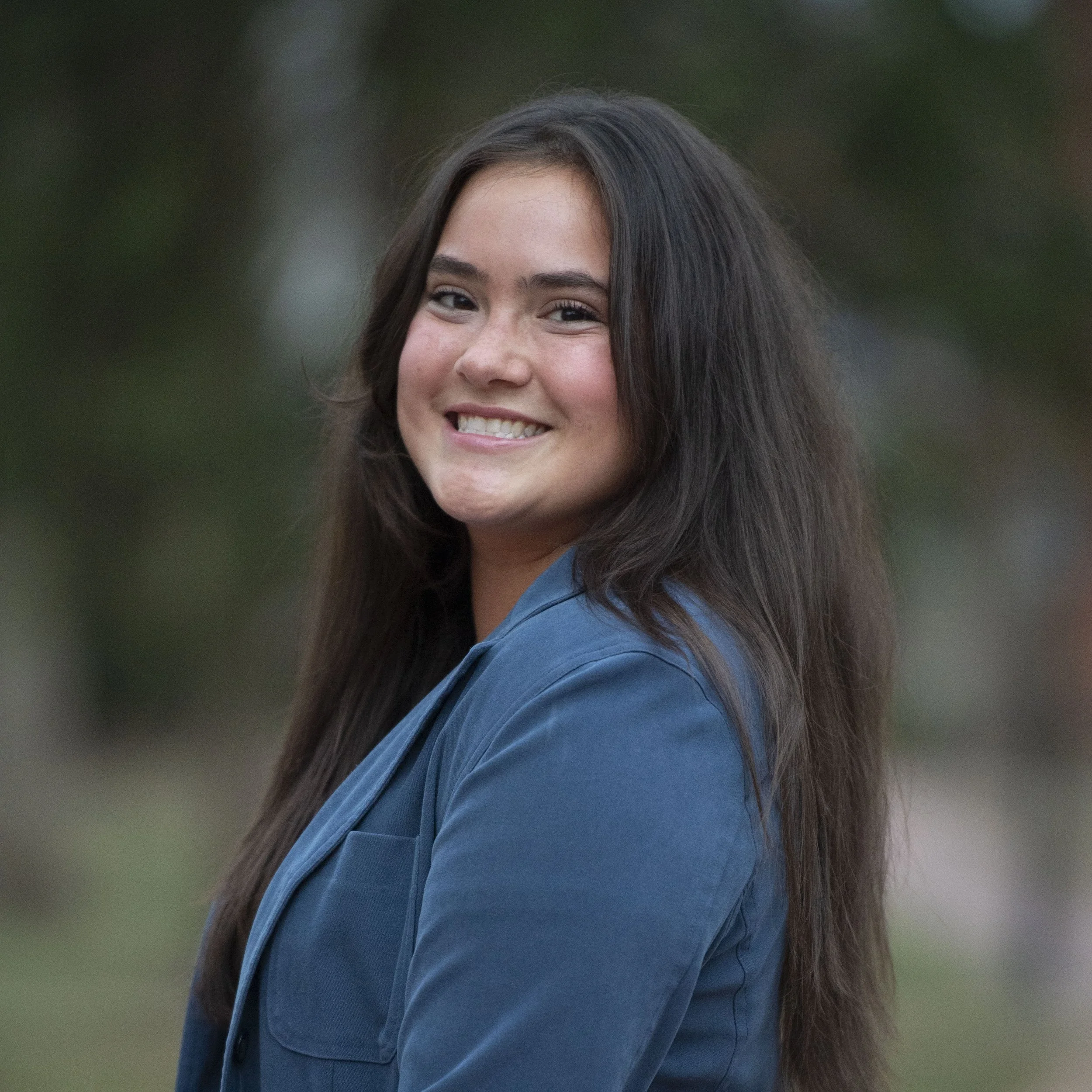¿No sabo? No problem
Illustration by Yunuen Bonaparte for palabra
How the put-down of “no sabo kid” became embraced, with Latinos redefining identity beyond perfect Spanish.
Justin Delgado identifies as Latino. His parents are Puerto Rican, and he grew up visiting the island. The 21-year-old with dark hair and eyes doesn't speak Spanish fluently.
Delgado is one of the thousands of people, usually children or grandchildren of native Spanish speakers, who have been called a “no sabo kid.” The term is a play on words, rooted in the incorrect way to say, “I don’t know” in Spanish. The correct form is “No sé,” with “to know,” or “saber,” being an irregular verb.
Muriel Gallego, an associate professor of applied linguistics-Spanish at Ohio University and a native Spanish speaker, said “no sabo” started as an insult. But that shame has flipped into sharper examinations of identity and what makes a Latino or Latina.
“This shaming for not using proper Spanish is going to shift the longer the generations are distant from the grandparents or the first generation who came fully monolingual,” she said. “I think most of the shaming comes from there. The older (generations) — the abuelas, the tías that say, ‘Oh, you don’t know.’”
Justin Delgado during one of his family visits to Puerto Rico. Photo courtesy of Justin Delgado
The term “No sabo” may have started as a degrading insult, but many Latinos are changing the narrative and wearing it as a badge of honor. TikTok alone has more than 67.4 million posts under the term “no sabo kid.” “When they say ‘no sabo,’ they think it means ‘no culture’ — but that’s just not true,” Delgado said.
In fact, according to Pew Research Center data from 2021, “72% of U.S. Hispanics ages 5 and older either spoke only English at home or spoke English very well, up from 65% in 2010.”
Every person’s experience with learning another language differs, and Delgado’s is no exception.
His mother was born in Puerto Rico, and his father’s family was part of the great Puerto Rican migration to New York City. The couple met as students at the University of Puerto Rico. Afterward, the couple moved to the U.S.
Born in Georgia, Delgado moved to Ramstein, Germany, when he was 3 years old due to his father’s military deployment. Because his father was on active duty, Delgado spent most of his time with his mom, who only spoke Spanish.
“On that base, my mom didn't know English,” he said. “And at that time, when I was really young, both me and her started learning English together. Instead of teaching me fully Spanish, she was like, ‘We both got to learn English’ because she's by herself.”
After deployment, the family moved to Enterprise, Alabama. There weren't many opportunities there to learn Spanish, plus he was in a private Christian school. “I was the only person of color in that school.”
More moves followed until the family landed in Virginia, near Arlington. The city's diversity prompted him to try Spanish in high school — fortified by an inspiring trip to Puerto Rico to see family. “They would be like, 'Man, you gotta learn Spanish.'”
“I needed to connect back to my roots,” he said.
‘We wanted to add that twist where it was like, ‘Yo sabo.’ It was for people to feel empowered to make that mistake.’
Last summer, Delgado completed an internship in Quito, Ecuador. Before going to Ecuador, Delgado said he and his mom were ecstatic he was going to have the opportunity to immerse in a Latino culture for the entire summer and practice his Spanish.
While in Ecuador, Delgado worked with Comciencia, a multimedia organization dedicated to spreading awareness about social and environmental issues. He helped with video production and photography editing projects in the Amazon Rainforest.
Not only was Delgado learning skills to boost his professional development, he was also finally immersed in a Latino culture 24/7.
Delgado said he faced a little razzing from his coworkers about his Spanish, but it was always from a place of love.
“They would call me ‘the no sabo kid,’ and at first I was like, ‘What the f—?’ But then I realized they didn’t mean it with ill intent because that’s what I am,” he said.
Justin Delgado and Ecuadorian llamas during his visit to Quito, Ecuador. Photo courtesy of Justin Delgado
Gallego, the linguistics expert, even questioned what is “correct Spanish.”
“We are the ones who own the language, so what is correct Spanish? We decide that,” she said.
Policing “correct Spanish” can have a negative impact, Gallego said.
“They go back home, and they say, ‘The teacher said it was wrong,’ and the mom is an undocumented person, maybe working (on) a farm, and she said, ‘Oh, the teacher might be right, so we are in the wrong,’ and then they stop using it, right? Or they stop taking Spanish.”
Support the voices of independent journalists.
|
Carlos Torres also saw himself in the term “No sabo.” A Los Angeles native, Torres was raised by his mom, a Mexican immigrant. As a single mother, teaching him her native language fell through the cracks, her son said.
“Language wasn’t a huge priority for my mom because she was an immigrant and needed to work,” Torres explained. “She only went up to middle school in Mexico, and she really wanted me to learn English so that I could teach her English.”
Now 32, Torres said it was not until after college and during the coronavirus pandemic that he started to be dedicated to fully learning Spanish. According to him, his wife Jess always had a stronger Spanish vocabulary, so he would often ask her how to say certain words. That phrase, “¿Cómo se dice?” became a ritual. It sparked the idea for the game “Yo Sabo.”
“Yo Sabo,” created by Jess and Carlos Torres. Photo by Alyssa Cruz for palabra
The Yo Sabo deck consists of three types of cards: “¿Cómo se dice?,” “Prueba” and “Chancla.” The majority of the cards are “¿Cómo se dice?,” which consists of a word in English with its Spanish counterpart at the bottom. The words, mostly nouns, are varied, ranging from “raccoon” to “jaundice.”
“We got to make a game out of this because I know I’m not the only one struggling with this,” Torres said. “(We wanted) to see how we could test and improve our Spanish in a fun way and kind of get people who are shy to practice their Spanish and be willing to make mistakes.”
With the help of a graphic designer, the couple was able to flesh out the mechanics of making the game and begin production. In 2022, they printed their first 500 games and sold out. Torres said they have sold over 22,000 games.
“‘No sabo’ has such a negative connotation,” Torres, the game’s co-creator, said. “We wanted to add that twist where it was like, ‘Yo sabo.’ It was for people to feel empowered to make that mistake.”
The flip of the put-down draws praise.
“There’s the other side of the coin, which is something that happened historically with these mock names, which is now people are reclaiming it, and so that offensive meaning kind of washes out,” Gallego said.
The team worked to popularize their game by flexing their social media muscles. The game has over 122,000 followers on TikTok and 25,000 on Instagram. Through the accounts, the couple hosts “lightning rounds,” where they rotate through the “¿Cómo se dice?” cards with self-proclaimed “no sabos.”
Torres said social media has really helped them elevate their brand. He detailed how the game has provided new perspectives about the different barriers many Latinos face against learning Spanish.
“The more we’ve sold and the more we’ve connected with other families, we’ve learned so much about how in some places it was literally illegal to speak Spanish and you were reprimanded for speaking the language,” Torres said.
Regardless of different circumstances, Delgado, Gallego and Torres all emphasized that knowing Spanish does not equate to “latinidad.”
“What makes you Latino?” Gallego, the linguistics professor, asked. “You decide.”
—
Alyssa Cruz is a senior at Ohio University, studying journalism and Spanish. She is the editor-in-chief of The Post, an independent, student-run newspaper. She has worked for two years as a coordinator for Altavoz Lab, a mentorship program for BIPOC reporters, and has completed a multimedia storytelling internship in Ecuador. Last summer, she was an intern for 60 Minutes in New York City. @alyssa_danccruz
Dianne Solis is a freelance journalist. She has worked as a staff writer for The Dallas Morning News and The Wall Street Journal. Her work has aired on KERA public radio and the Texas Standard. She has reported extensively on immigration for decades. She graduated from Northwestern and California State University, Fresno, and was a Nieman Fellow at Harvard. @disolis


